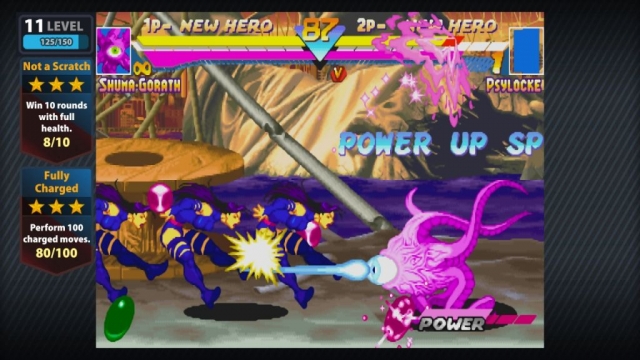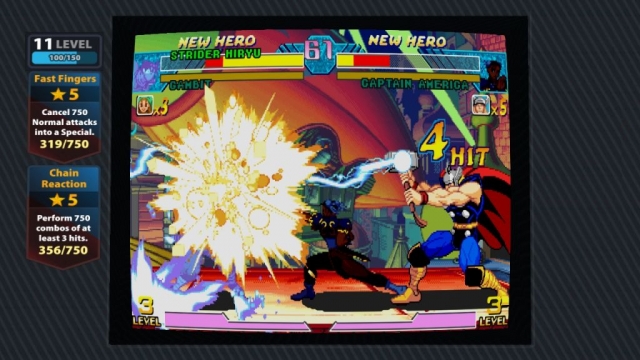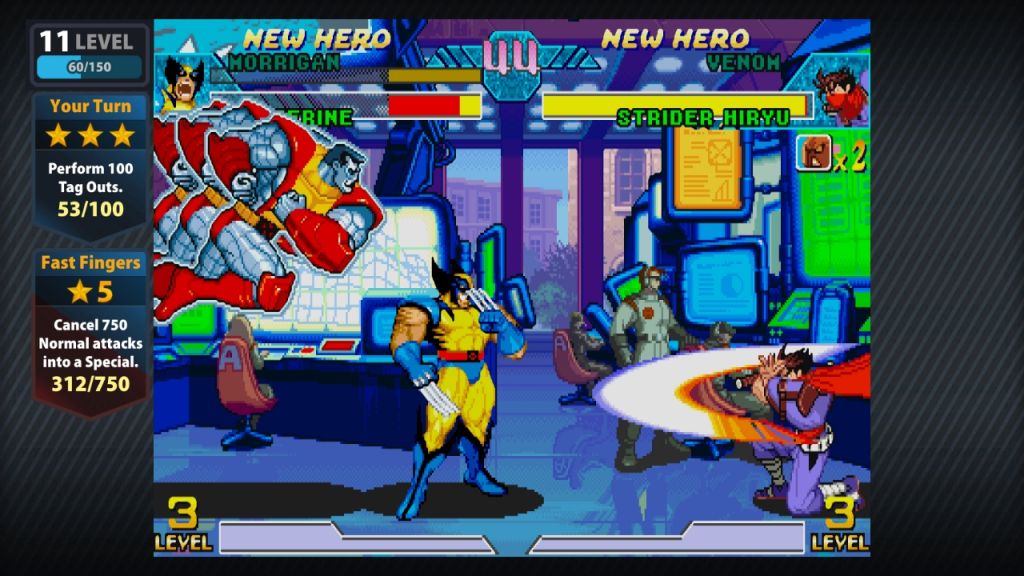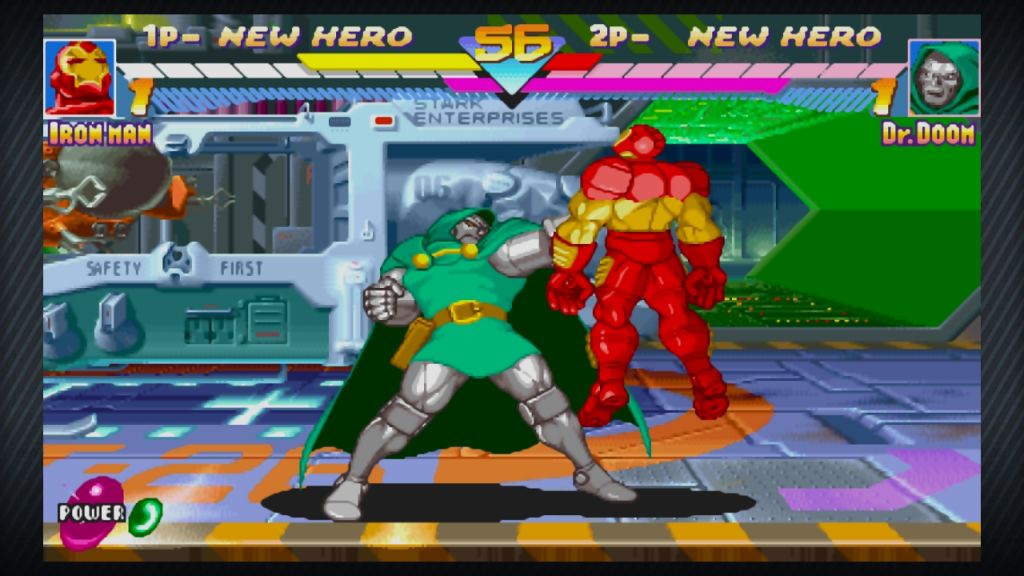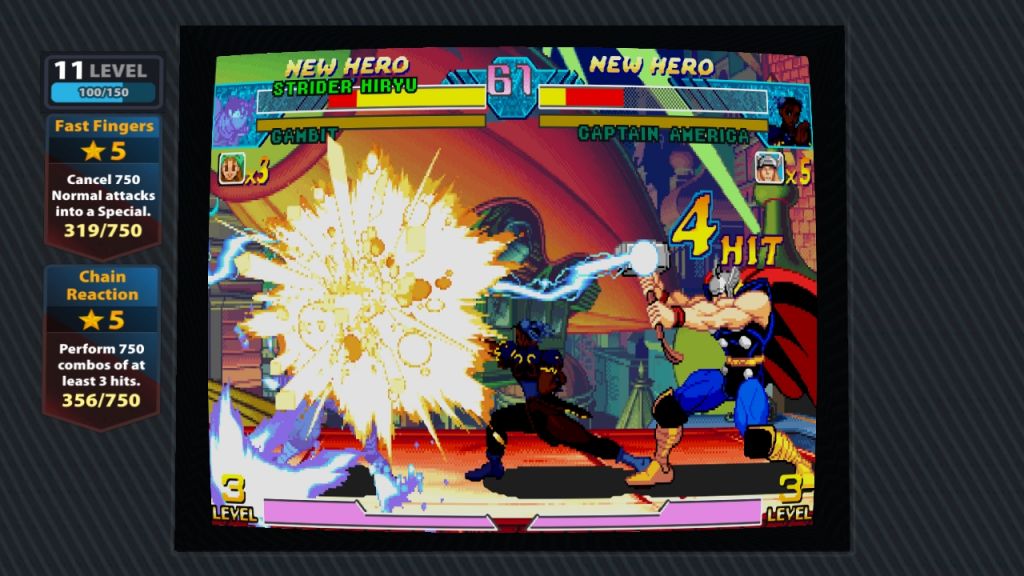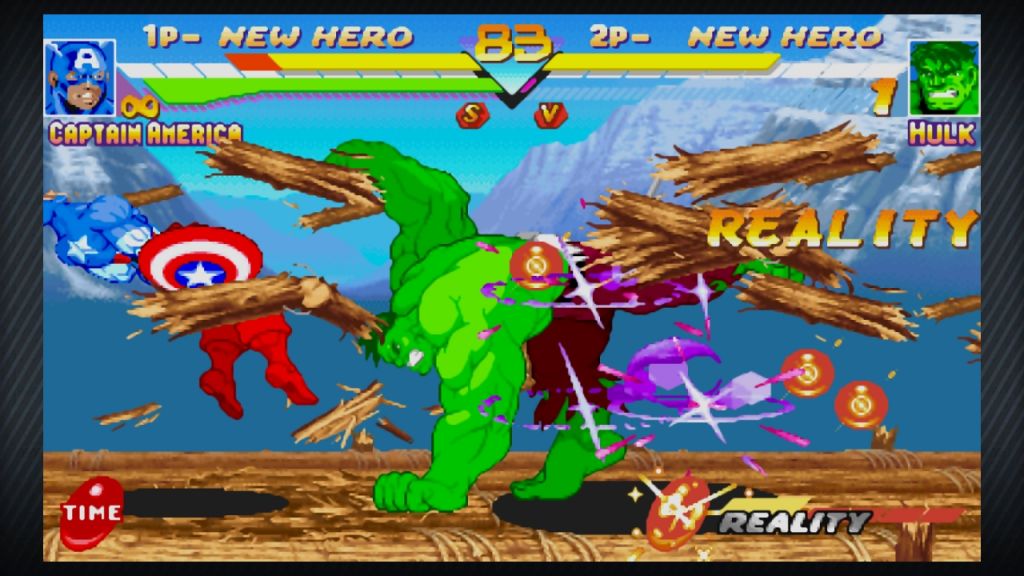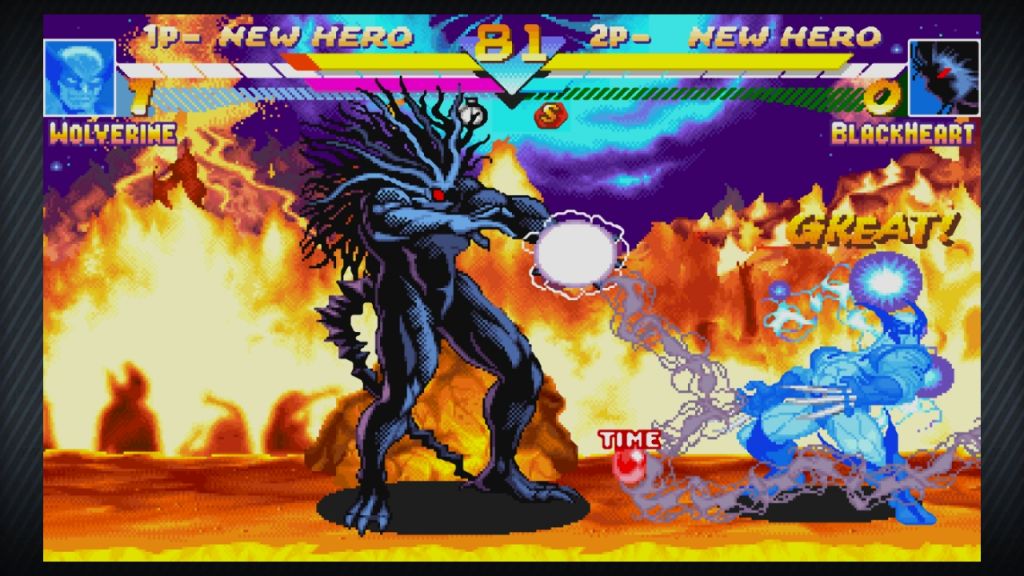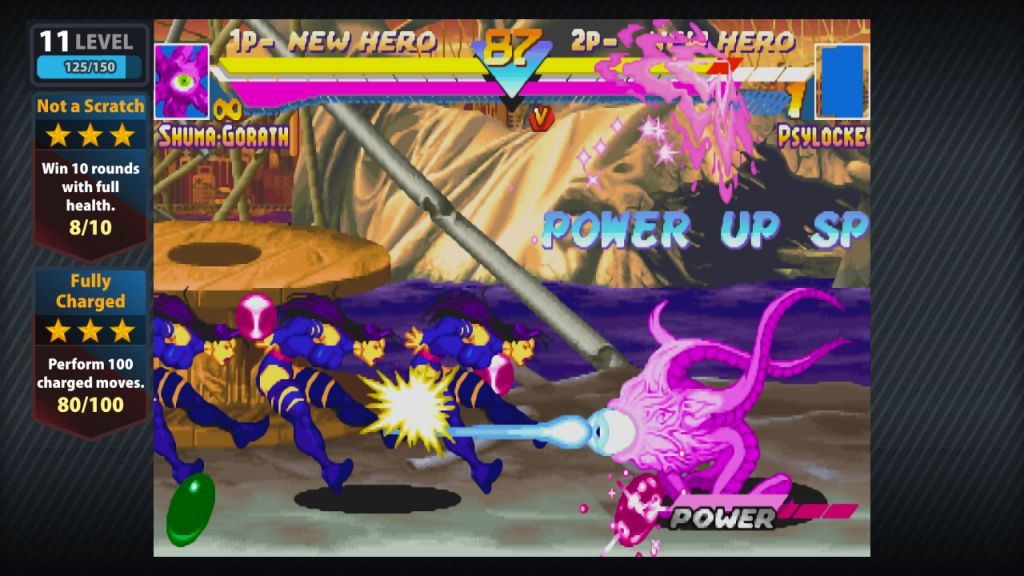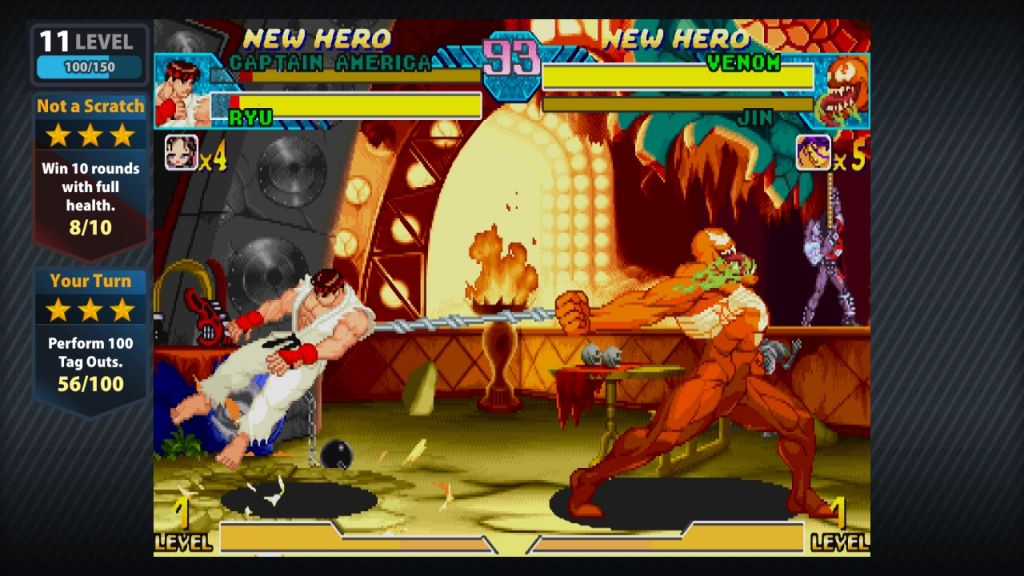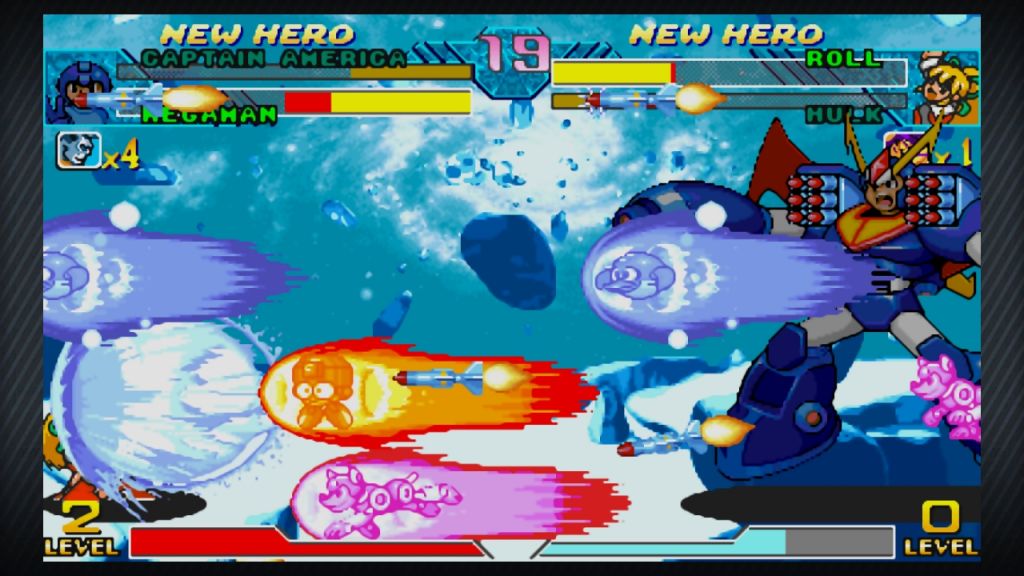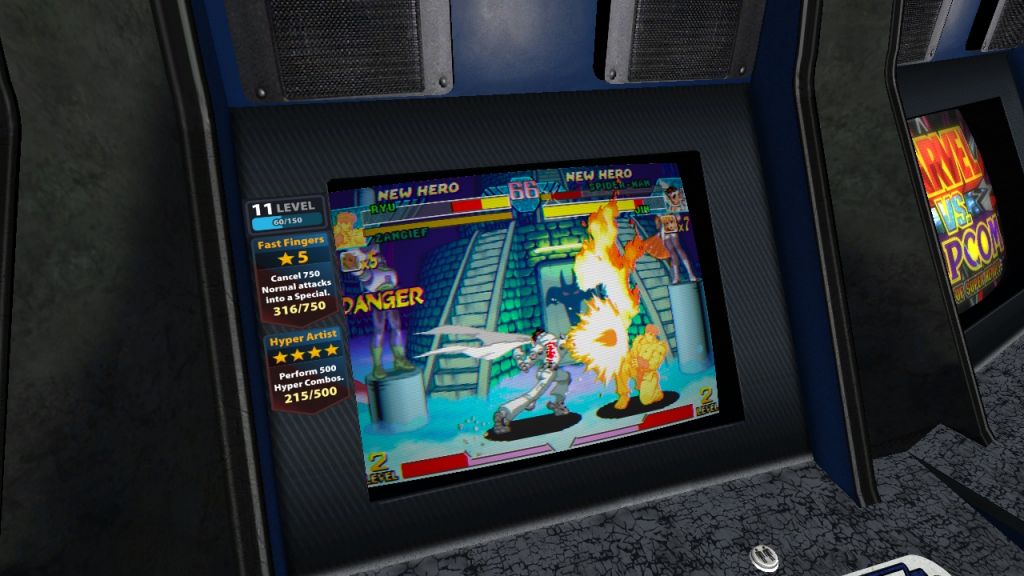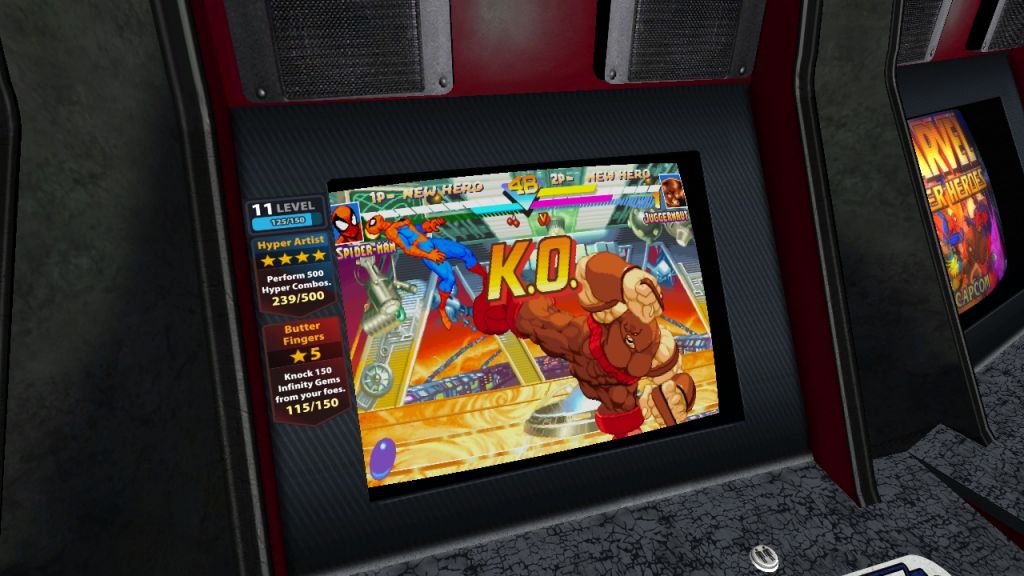Marvel vs. Capcom Origins Review
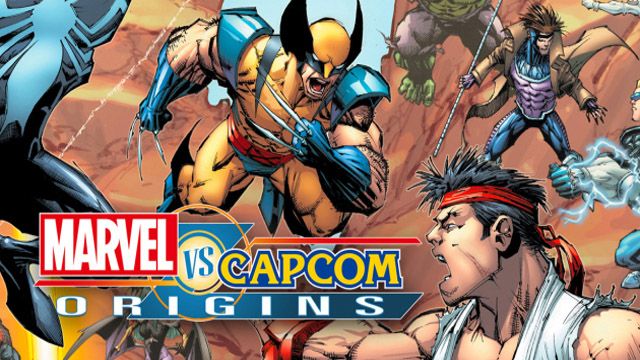
As far as I’m concerned, the Origins package is worth it for an arcade-perfect version of Marvel Super Heroes (MSH), but that’s probably the nostalgia talking. I put a lot of arcade time into this game back in the late nineties, handing out beatdowns with Spider-Man or Captain America, and it’s been an ongoing frustration of mine for the last fifteen years or so that it’s so hard to find a decent home version. It was ported to both the PlayStation and the Sega Saturn in 1997, but both versions are surprisingly rare.
Playing MSH now still feels very natural. It only features ten selectable characters, with three more that you can play via cheat codes, but it’s one of the more balanced and user-friendly fighting games from this period of Capcom’s history. Each character has a sort of built-in hard counter – Wolverine loses hard to Iron Man, for example – but each level also features the presence of up to six different Infinity Gems. Players can collect these, or knock them out of their opponents with special or super moves, and use the Gems to trigger short-lived, potentially game-changing abilities. MSH has aged very well, all the more so because this is the first time it’s been ported in fifteen years.
Granted, it’s got a brick wall of a final boss. MSH is based incredibly loosely on the Infinity Gauntlet miniseries, where old-school Marvel villain Thanos collected six Infinity Gems to become omnipotent. In-game, Thanos has six separate super moves and it’s very easy for him to simply lock you down. Back in the day, we used to say to each other that Thanos has to let you win, and that’s still more or less the case. It doesn’t detract from playing it head-to-head, however, and the GGPO-fueled netcode feels very smooth and natural in online versus play.
Both games have a weird sort of bonus system. You can set up the visual field in an simulation mode complete with scan lines, to replicate the look of an old, well-used arcade cabinet, or opt for an over-the-shoulder option where it looks like you’re playing the game on a Japanese-style sit-down machine from a couple of feet away. Capcom’s always gone the extra mile in their recent arcade conversions to include a bunch of options that provide as much of an “arcade feel” as possible, and this is no exception.
As positive as I am towards Marvel Super Heroes, I can’t say as much for Marvel vs. Capcom. After MSH, Capcom began recycling as many sprites as they could from their earlier fighting games in order to churn out a series of crossover games that are justly notorious for having serious balance problems. Marvel vs. Capcom is the third game in that series, following X-Men vs. Street Fighter and Marvel Super Heroes vs. Street Fighter, and there’s a certain flimsy, cheap look to it that’s aged very poorly. It’s got a lot of mostly-pointless gimmicks, like being able to put both characters on screen simultaneously for short periods of time, and much of the cast has been put into the game completely unaltered from past installations. It came out in 1997, as the arcade scene was beginning its decline, and has a certain feel like Capcom was trying to make as much money as they could before the entire industry collapsed.
I’d argue that Marvel Super Heroes is worth the price of admission here, but like I said, it’s one of my childhood favorites and it’s possible I’m biased. Marvel vs. Capcom, despite its sequels, isn’t anywhere near as good and I could’ve done without its inclusion.
Reviewed By: Thomas Wilde
Publisher: Capcom
Rating: 85%
——————————————————————————–
This review is based on the Xbox Live Arcade version of Marvel vs. Capcom Origins provided by Capcom.
 Game Over Online
Game Over Online